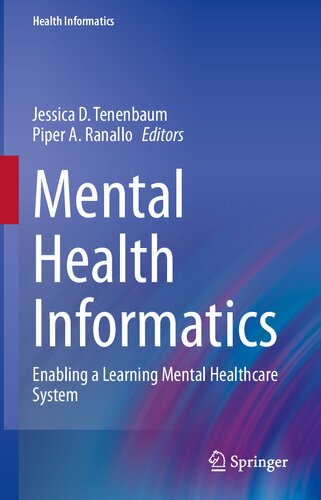

Most ebook files are in PDF format, so you can easily read them using various software such as Foxit Reader or directly on the Google Chrome browser.
Some ebook files are released by publishers in other formats such as .awz, .mobi, .epub, .fb2, etc. You may need to install specific software to read these formats on mobile/PC, such as Calibre.
Please read the tutorial at this link: https://ebookbell.com/faq
We offer FREE conversion to the popular formats you request; however, this may take some time. Therefore, right after payment, please email us, and we will try to provide the service as quickly as possible.
For some exceptional file formats or broken links (if any), please refrain from opening any disputes. Instead, email us first, and we will try to assist within a maximum of 6 hours.
EbookBell Team

4.8
14 reviewsThis textbook provides a detailed resource introducing the subdiscipline of mental health informatics. It systematically reviews the methods, paradigms, tools and knowledge base in both clinical and bioinformatics and across the spectrum from research to clinical care. Key foundational technologies, such as terminologies, ontologies and data exchange standards are presented and given context within the complex landscape of mental health conditions, research and care. The learning health system model is utilized to emphasize the bi-directional nature of the translational science associated with mental health processes. Descriptions of the data, technologies, paradigms and products that are generated by and used in each process and their limitations are discussed.
Mental Health Informatics: Enabling a Learning Mental Healthcare System is a comprehensive introductory resource for students, educators and researchers in mental health informatics and related behavioral sciences. It is an ideal resource for use in a survey course for both pre- and post-doctoral training programs, as well as for healthcare administrators, funding entities, vendors and product developers working to make mental healthcare more evidence-based.